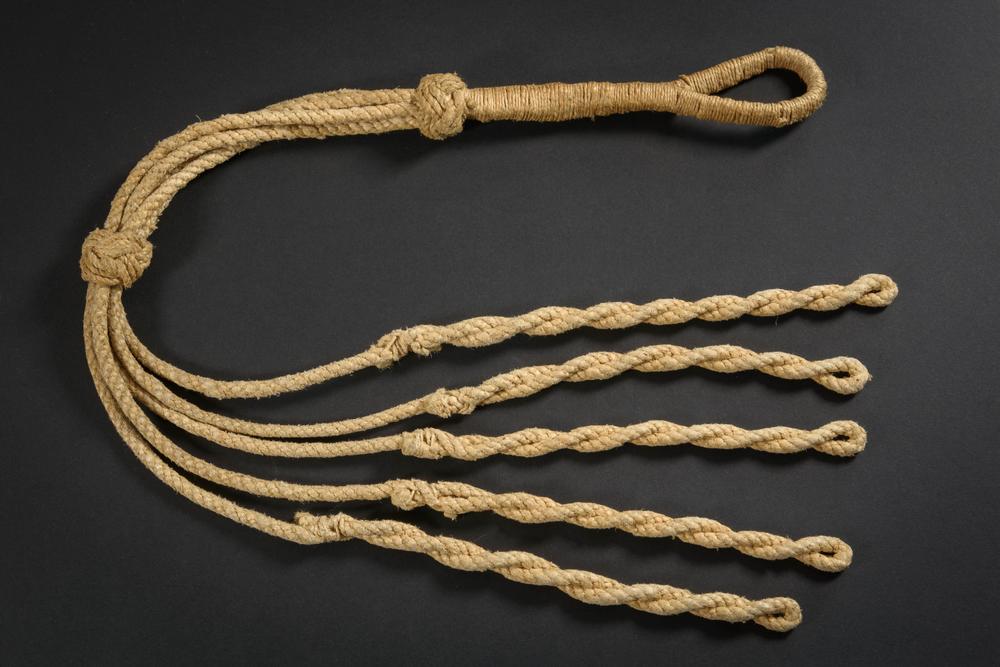MONASTIC PENITENTIAL SCOURGE WITH 5 KNOTTED CORDS
SOLD — This object is now part of a private collection
MONASTIC PENITENTIAL SCOURGE WITH 5 KNOTTED CORDS
Our prices are in euros, the prices converted in dollars or other currencies can vary according to the rate.
Free Worldwide Shipping – Secure and Protected Delivery
ref: #RK00-684Couldn't load pickup availability
This monastic penitential scourge, originating from an ancient monastery, is an instrument of penance intended for self-flagellation, an ascetic practice aimed at strengthening humility and spiritual commitment through bodily suffering.
Made entirely of braided rope, it features a tightly wound loop for a secure grip. Extending from this handle are several thick strands, interwoven with strategically placed knots. These knots increased the impact of strikes, intensifying the pain while preventing open wounds, unlike metal scourges.
Far from being a mere instrument of punishment, this scourge was used by monks within a rigorous framework of prayer and meditation, where each blow to the back or shoulders became an act of humility and atonement for sins. Its rope construction suggests that it was quieter and more discreet than metal versions, allowing for its use in the secrecy of monastic cells, away from prying eyes.
The condition of the braiding, well preserved despite the wear and tear of time, testifies to the robustness of this object and its repeated use. More flexible than metal scourges, it allowed for rhythmic and prolonged flagellation, thus extending the spiritual trial.
Today, this object remains a poignant testament to the practices of bodily mortification that marked monastic life. It illustrates a time when physical endurance and controlled pain were seen as paths to purification and spiritual elevation.
PERIOD : late 19th century
DIMENSIONS : 56cm
SIZE : 22"
An instrument of penance known as a scourge, similar to a small whip, has been used by members of some Christian denominations, including Anglicans, Lutherans, and Roman Catholics, as part of the spiritual practice called mortification of the flesh.
Flagellation, an ancient practice associated with extreme forms of asceticism, has been used by some religious figures to purify themselves spiritually and mortify their own flesh. This form of intense corporal discipline is considered a means of penance to atone for sins. Some believe that self-flagellation strengthens their connection with God and brings them closer to the suffering of Christ. However, it is important to note that this practice is not widespread across all religious traditions and often generates controversy due to its marginal nature.



